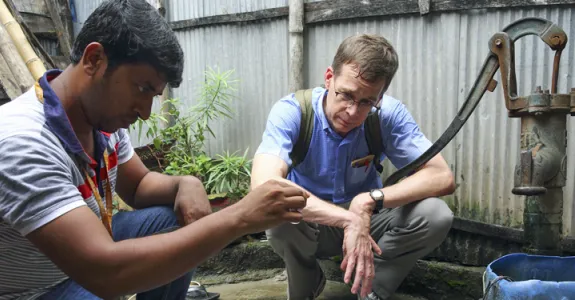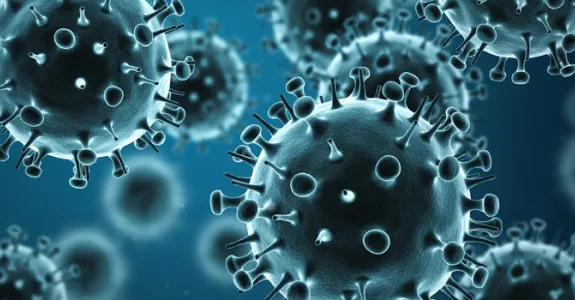
Dr. Stephen Luby studied philosophy and earned a Bachelor of Arts summa cum laude from Creighton University. He earned his medical degree from the University of Texas Southwestern Medical School at Dallas and completed his residency in internal medicine at the University of Rochester-Strong Memorial Hospital. He studied epidemiology and preventive medicine at the Centers for Disease Control and Prevention.
Dr. Luby's previous positions include directing the Centre for Communicable Diseases at the International Centre for Diarrhoeal Diseases Research, Bangladesh in Dhaka, Bangladesh from 2004 - 2012, conducting research and teaching epidemiology at the Aga Khan University in Karachi, Pakistan from 1993 - 1998, and working as an epidemiologist in the Foodborne and Diarrheal Diseases Branch of the U.S. Centers for Disease Control and Prevention.
Dr. Luby’s research is focused on health in low and middle income countries and currently includes several themes:
Human and Planetary Health: A thriving human future requires a thriving planet. Dr. Luby’s research group is engaged in a series of efforts to generate knowledge that will alter the way that bricks are manufactured across South Asia so that they generate less air pollution, less climate change and tens of thousands fewer deaths per year. This involves: 1) evaluating interventions in brick kilns to improve combustion efficiency and so simultaneously reduce coal costs for producers while generating less pollution and 2) using remote sensing to specify the location of brick kilns and ultimately evaluate their emissions. Another strand of his planetary health work looks at the release of lead into the environment in low and middle income countries, seeks to identify the sources of lead that is generating the greatest public health burden and develops and evaluates interventions to reduce this burden.
Practical Interventions to Reduce Infectious Disease Transmission: These activities include efforts to maximize the uptake of masks, water treatment and vaccines with careful evaluation of their impact. His research group explores strategies to reduce the risk of pathogen transmission in healthcare facilities in low and middle income countries.
Favorite infectious diseases: He continues to advance his long-standing interest in the epidemiology and prevention of Nipah virus and typhoid fever.



